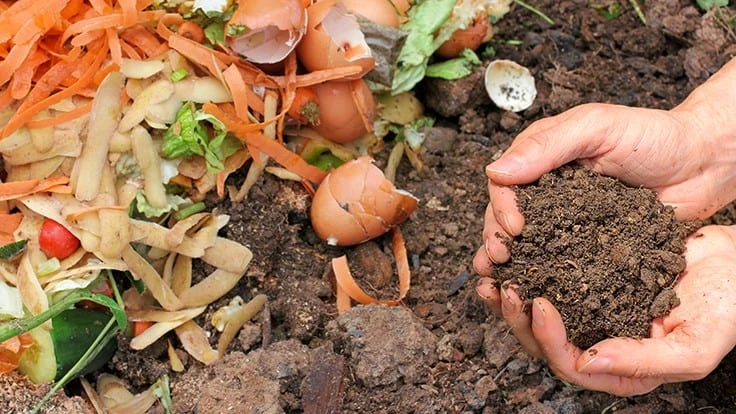
South Carolina-based recycling firm Green Energy Biofuel (GEB) has recently acquired ReSoil, a composting facility in Kershaw County, one of the latest moves the growing company has made in over a decade to increase its services and open new opportunities for industrial.
GEB says it is making significant investments in its new composting business to help large waste generators in the region find a landfill-free option for disposal of difficult organic waste to meet regulatory and corporate demands, as well as evolving consumer expectations.
“We’ve invested $160,000 in ReSoil before we even closed on the purchase—and we’re not done,” says Joe “BioJoe” Renwick, GEB co-founder. “In 12 months, we’ll have put nearly $2 million into the composting business.”
GEB has spent four months in site preparation making ReSoil a more efficient, resourceful facility to serve its existing customers and potential clients. Over a half-million pounds of recycled concrete, rock and grading clay sand has been brought on site to modify the yard for operational improvements.
GEB poured over 100 yards of concrete, created eight bulk storage bays and a rainwater-capture system to hydrate the almost 800 cubic yards of compost it can produce every month. “This was a big project,” Renwick says.
The facility’s process flow has also been modified to optimize efficiency. “We haven’t changed the composting process, just how the business is run and how compost moves through the facility to create efficiency,” Renwick explains.
The site features six 80-yard bays, each with a forced-air delivery system to pump fresh air into the compost, which increases the temperature and rate of decomposition. The parameters are maintained by electrical controllers and timers to achieve and maintain temperatures required for the process. Temperature is monitored regularly for it to be high enough to kill pathogens but low enough to not spontaneously combust.
When organic waste is received, it is mixed with wood chips, which serve as a bulking agent, from one of two sources. Pure oak chips come from Pro Pallet South, a refurbished pallet manufacturer in Winnsboro, whose broken pallets are chipped and find new life in GEB’s engineered soil. Also, once a year the Kershaw County landfill grinds yard debris from the surrounding area, where GEB sources composting chips as well.
In addition, clay sand from Kershaw Mining next door and vermiculite from Woodruff-based Palmetto Vermiculite are added in various recipe proportions to make five different engineered soils. Due to this local sourcing of material, ReSoil product has achieved the Certified SC label. The whole process—from waste in to screened, engineered soil out—takes 45 days.
Acquiring and optimizing ReSoil is just one of many evolutionary progressions GEB has made along its 14-year waste-recycling journey, the company says.
In the late 2000s, it began as Midlands Biofuels, a collector and processor of used cooking oil (UCO), making biodiesel fuel at its plant in Winnsboro. As its collection accounts and abilities grew, GEB expanded into Tennessee and then closer to home in Aiken County, South Carolina, where it purchased a large-scale, idled manufacturing facility.
GEB repurposed and invested heavily into the site to process and recycle 200,000 gallons per day of liquid organic waste—everything from UCO and trap grease from restaurants and large-scale food manufacturers to wastewater streams and sludge, with its recently obtained wastewater processing permit. With ReSoil, the company now has a beneficial outlet for organic solids too.
“Through our internal efforts to be a landfill-free company, we developed our business in such a way that now, not only are we landfill-free, but we can help other companies be the same,” Renwick says.
Latest from Waste Today
- Meridian Waste acquires NC hauling firm
- SWANA webinar focuses on Phoenix recycling collaboration
- IntelliShift honored at IoT Breakthrough Awards
- Glass Packaging Institute applauds regulation change
- Paper recycling is focus of 2 January webinars
- Disruption likely for material flows in mid-January
- Florida composting event takes place at worksites
- NC State research could improve predictions for solid waste management





